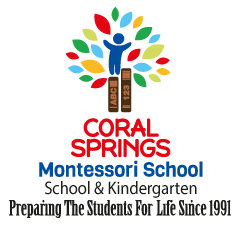First Day Jitters
August 16, 2016What are Five Benefits of Montessori education?
1. Self-independence and innovative instruction
- Montessori education focus’ on self-independence and innovative instruction. Montessori educated students are better adapted in their social and academic skills. Montessori kids showed a more prominent feeling of equity and reasonableness. They also show the biggest in behavior skills.
- Montessori students are led by their directress but their curriculum is led by the child. Maria Montessori believed “prepared learning” environment was conducive to sense learning and creative exploration. Teachers were encouraged to stand back and “follow the child”—that is, to let children’s natural interests take the lead.
- The Montessori Method in education discourages traditional competitive measurements of achievement, such as grades and tests, and instead focuses on the individual progress and development of each child. The hands-on approach of the Montessori math materials especially prepare children to succeed in mathematics.
- The Montessori curriculum includes: practical life, sensorial, mathematics, language, geography, social studies, and science including biology and botany. Within each of these areas is a vast array of learning activities which will engage every child.(Read More at the Guardian Website)
2. All Children learn differently
- Learning styles are utilized to portray and help us comprehend the learning styles in which diverse individuals learn. These different learning styles help us understand how we learn in different ways. Helping children to identify the ways that they learn best and providing them with opportunities to use all their senses and different intelligences is one of the key challenges for teachers and parents. Neurodevelopmental framework for learning through which learners and learning can be taught.
- Teachers can implement these learning styles how different children can learn and how their brain learns. Teachers of all students as well as ELL can apply the different learning styles and using the different strategies that are used to teach in different ways. All children are diverse and have diverse needs. The key is to figure out how each child’s brain is wired. Teachers need to understand their students and figure out the brain neurodevelopmental and innovative ways to teach children.(Learn More)
3. Learning from their peers
- In Montessori education mixed ages are in the same class and are encouraged to collaborate and help their peers each other. They are being taught their life skills through lessons and are adapted positive behavior and social effects due to Montessori education. “Montessori education fosters social and academic skills that are equal or superior to those fostered by a pool of other types of schools.”
4. Nature
- Montessori education is also being provision for the child to have contact with nature; to understand and appreciate the order, the harmony and the beauty in nature.” Maria Montessori “It is also necessary for his psychical development to place the soul of the child in contact with creation directly educating forces of living nature.” Maria Montessori would agree with the movement to get kids outdoors. She placed a great emphasis on nature and nature education. Dr. Montessori also felt that the outdoor environment should be an extension of the classroom. (Learn More)
5. Community at school
- Montessori education also fosters a greater sense of the community at school. Research has also proven what common sense tells us: children grow and thrive in the context of close and dependable relationships. These relationships must provide love and nurturance, security, responsive interaction, and encouragement for exploration. A child’s first experience with this kind of relationship is at home with a loving family.
- When you entrust your child to the care of early childhood professionals, you not only want your child to be safe and to learn, you also want your child to be accepted and valued, to feel she belongs in the school community. This is important, of course, but what families often do not understand is how important it is for you to be a part of the school community. Children feel more confident and comfortable at school when they feel their families are a part of the community as well. We foster these relationships within the Montessori education. (Learn More)

no-repeat;center top;;

